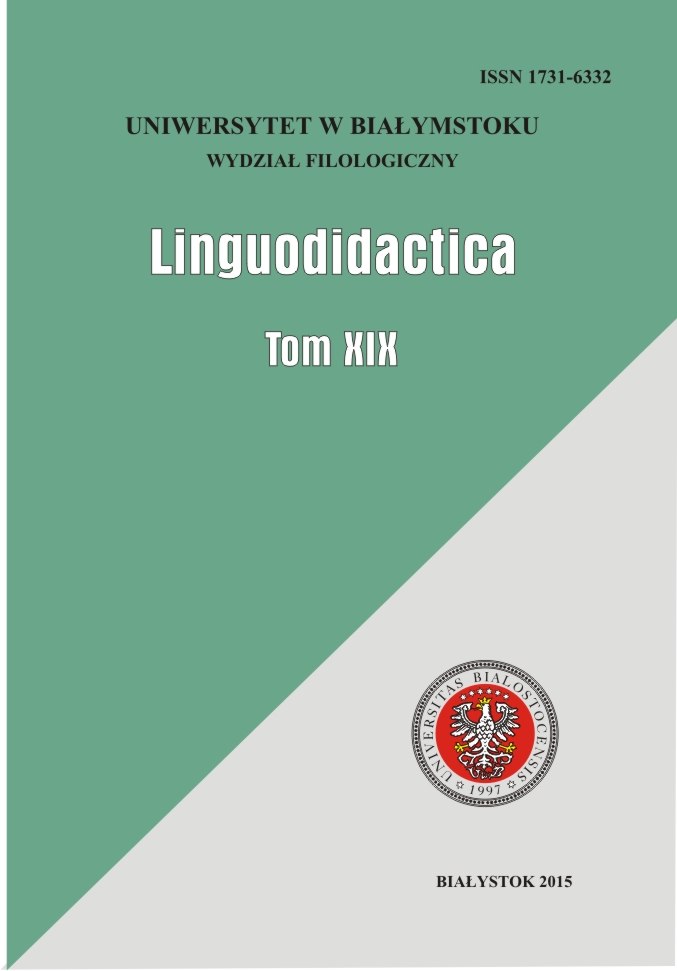Input w dyskursie klasowym na przykładzie języka niemieckiego jako obcego w szkołach ponadgimnazjalnych
Language input in any class discourse during classes of German language taught as a foreign language in upper-secondary schools
Author(s): Magdalena BiałekSubject(s): Language and Literature Studies, Foreign languages learning, Applied Linguistics
Published by: Wydawnictwo Uniwersytetu w Białymstoku
Keywords: input; foreign language learning; mother tongue
Summary/Abstract: This article focuses on language input presented in any class discourse during classes of German language taught as a foreign language in upper-secondary schools. In the theoretical part of the article a short review of literature discussing the role and meaning of primary linguistic data in the process of learning a foreign language in formal conditions was conducted. Next processes which occur during first language acquisition were compared to the processes involved in foreign language acquisition. Moreover, contrary attitudes of the researchers towards applying mother tongue and foreign language in foreign language teaching were presented. In the empirical part the results of the research were presented. The aim of the research was to analyze the quality of typical class discourse input provided during a foreign language lesson in comprehensive upper-secondary schools. The research showed that Polish teachers of German language are not experts on creating immersive environment during foreign language classes. It occurred that frequently many lesson sequences are carried out in the mother tongue of students and a teacher. Teachers rarely apply teaching techniques and use materials which provide enough good language input. It is also astonishing that German language teachers do not encourage young learners to come into contact with real German language in out-of-the classroom situations. They seem not to take into account how great the advantages of using available materials and media might be. Furthermore, they do not enable their students to listen to German music or watch German films, either. The results of the research reveal that teachers of German are not greatly concerned with appropriate quality and amount of language input during lessons. Their awareness of all these issues is not deep enough. The main conclusion of the article is to imply the necessity of conducting more detailed research in the described area.
Journal: Linguodidactica
- Issue Year: 2015
- Issue No: 19
- Page Range: 19-37
- Page Count: 19
- Language: Polish

